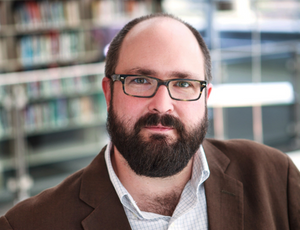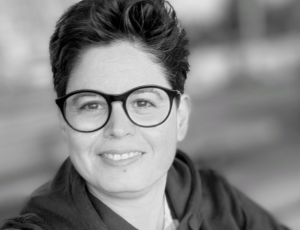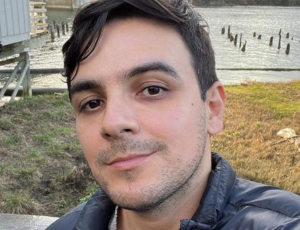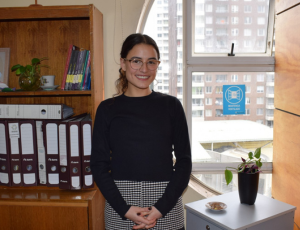
I am a historian who regularly teaches courses on international Cold War history, American history, and political economy. My scholarship focuses on U.S.-Eastern European relations with particular attention given to American support to the Solidarity trade union movement during the 1980s. I am the author of numerous reviews, journal articles, and book chapters, as well as the monograph Empowering Revolution: America, Poland, and the End of the Cold War (UNC Press, 2014).
For 2022-2023, I am a Senior Fulbright Scholar in Poland, hosted jointly by the UJ Institute of American Studies and Polish Diaspora and the Institute of Political Studies PAN. My research project for the year seeks to better understanding the impacts of American exchange programs on the development of Poland’s political culture from 1956 to 1989. Specifically, the project utilizes social network analysis to measure, map, and visualize longitudinally the connections between people, institutions, and experiences that directly and indirectly linked exchange participants with Poland’s Round Table process. By combining digital humanities techniques with traditional historical inquiry, my project seeks to write the first comprehensive monograph on American-Polish exchanges during the Cold War while specifically analyzing those programs’ successes (and possibly failures) at shaping Poland’s democratic revolution in 1989.
While at IAiSP I will be teaching a course on U.S.-East European relations from 1914 to the present, primarily focused on American elite thinking, U.S. grand strategy (to the extent it existed), and diplomatic relations. Key topics will include: World War I and the creation of the Polish state; the build-up and settlement of World War II; the bi-furcation of Europe in the early Cold War; U.S. attempts to undermine Soviet and Communist power through international exchanges, book programs, and radio broadcasting; economic and political cooperation during the era of détente; American responses to the growth of Polish dissidence in the late 1970s; U.S. policy toward the Solidarity trade union movement and the collapse of Communism; U.S. economic and political aid in the early years of the Third Polish Republic; NATO expansion; and Polish participation in the American wars in Afghanistan and Iraq. Readings will include works of scholarship as well as primary sources like declassified documents, private papers, and speeches. Conceptually, the course will return again and again to the overlapping issues of Poland’s place as but a single case in American policies dominated by broader regional concerns, and the fluctuating balance between Polish agency and American influence, with an eye toward using the past to inform our understanding of current responses to the Russian war in Ukraine.
U.S.-Eastern European relations: course description on USOSweb.

Since 2021, I am Full-Time Researcher at the Instituto de Investigaciones Sociales (IIS) at the Universidad Autónoma de Baja California (UABC) and member of the Mexican National Researchers System (Conacyt). My scholarship focuses on organized crime, violence, necropolitics, and cross-border security issues in the Tijuana – San Diego region. I have published on firearms trafficking, violent homicides, organized crime, and money laundering in Baja California.
I have a bachelor's degree in Sociology, a master's degree in Law, a Ph.D. in Urban Studies, and a postdoc in Law. All my studies were completed at the Universidad Nacional Autónoma de México (UNAM) in Mexico City. I have engaged in several short visiting research stays, for example, at the City University of New York (CUNY), the University California San Diego (UCSD), the University of Oxford, and recently, in 2023, at the Jagiellonian University. Krakow was not a mere coincidence: I had been collaborating with Professor Karol Derwich for a couple of years, so it was only natural to reach out to the Jagiellonian
My academic visit to the Institute of American Studies and Polish Diaspora, and the Institute of Political Science and International Relations was both productive and enjoyable. It genuinely made a significant imprint on both personal and professional spheres. I had the opportunity to engage in vibrant academic experiences with my Polish colleagues, make new friends, and have a nourished cultural exchange. I learnt from the city’s complex history and urban landmarks, and, juxtaposed them with my own optics as a researcher of the border and necropolitics. I am very grateful for the experience and look forward to continuing my collaboration with this generous academic community.

I am a social scientist working primarily in the fields of Sociology and Anthropology. My research focuses on education, religion, and the history of the Social Sciences. I am an Associate Professor at the Department of Sociology and Political Science at the Federal University of Santa Catarina, Brazil, and an affiliate to the Brazilian Academy of Sciences and the Global Young Academy. My academic work comprises numerous journal articles, reviews, and book chapters, as well as the recently published monograph Gilberto Freyre & a Educação (Ed. Massangana, 2023).
In 2021 I was a visiting professor at the Institute of American Studies and Polish Diaspora, Jagiellonian University, within the Coimbra Group Scholarship Program for Young Professors and Researchers from Latin American Universities. During my visit, I taught an intensive course “Interpretations of Brazilian society,” centered on key classic and contemporary readings of Brazilian society and culture. The course employed both historical and present perspectives, discussing selected aspects of Brazilian society, such as racism and inequality, and facilitating a comparison between the political situation in Brazil and Poland.
Along with teaching, I carried out a research project focused on the rise of conservative movements in Europe and Latin America, primarily Poland and Brazil, highlighting their impact on higher education. My visit at the Jagiellonian University has resulted in several publications (“National curricula and citizenship education in populist times. The cases of Brazil and Spain,” Compare-A Journal of Comparative and International Education, 2023; “The rise of the School Without Party movement and the denunciations against the ‘indoctrinating teachers’ in Brazil,” REIDICS - Revista de Investigación en Didactica de las Ciencias Sociales, 2022; “Os Eslavos na obra de Gilberto Freyre: Entre a Rússia Americana e os Poloneses no Brasil,” Studia Iberystyczne, 2022), as well as initiated research cooperation and didactic exchange on various levels between the host and the sending institutions, including an institutional agreement for student mobility (in progress).

I am a sociologist and professor from the University of Buenos Aires, currently holding a PhD scholarship from the National Council of Scientific and Technical Research of Argentina. My research focuses on the actors and discourses of right-wing movements in contemporary Argentina, particularly regarding the construction of meaning and the utilization of concepts such as republicanism, populism, and democracy. I have conducted research at the University of Cadiz in Spain, the University of Sao Paulo in Brazil, the University of Playa Ancha in Chile, and the Paris Lodron University of Salzburg in Austria. Studying current political phenomena greatly benefits from exchanging theoretical and methodological approaches with colleagues from other latitudes, as well as comparing social and political developments from different countries.
In November and December 2023, I visited the Institute of American Studies and Polish Diaspora at Jagiellonian University as part of the Coimbra Group Scholarship Program for Young Professors and Researchers from Latin American Universities. During my time at Jagiellonian, I had the opportunity to exchange research ideas with colleagues from the Institute, particularly Professor Magdalena Lisińska, discuss the current political scenarios in both Argentina and Poland, and present the main results of my research on the politics and media in contemporary Argentina during a public event. My time at the Institute was very productive, and the colleagues were very welcoming, inviting me not only to learn about their work but also about Poland and Polish culture. I deeply appreciate this experience and look forward to our future collaboration.

